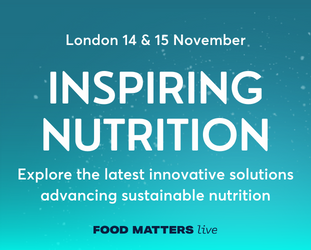How nutrition can support mental health: what to eat, what to avoid, and the truth about good mood food

Grilled fish with a green salad and a drizzle of olive oil. Or a quick pasta and sauce. Perhaps, a drive-through burger if you’re rushing. What’s on your dinner menu? Nutrition has an impact on our physical and mental health, so how exactly does what one eats alter what’s going on emotionally and inside the head?
Fuel for thought
“On a really basic level, the brain is just an organ, full of cells that need fuel,” explains Alison Holloway, a Registered Dietitian trained in cognitive behavioural therapy, neurolinguistic programming and hypnotherapy. The brain uses 20% of all the energy your body needs, so having steady blood glucose levels helps brain function. “If we’re missing meals, missing nutrients, we’re not fuelling our brain or those cells. That’s the physiology,” says Holloway.
“I’d want to see someone eating regular meals [because otherwise] they’d be missing out on nutrients and have dips in energy during the day which doesn’t help our mental health or concentration, plus missing meals might create feelings of wanting to binge later on,” she explains.
Next, she’d consider the balance of those meals, the mix of carbohydrate, protein, vegetables, not only for nutrients but also for feeling full and satisfied. “My patients, many of whom are autistic or have ADHD, have varying difficulties with food so it’s not always that easy to get that balance. A lot of my patients have disabilities, so ready meals – with extra veg – can be really accessible, and good for people who struggle with memory or making decisions about food.”
Beyond basic nutrition, she factors in what makes that person happy, from joyful movement to creativity as well as favourite snacks. “Normally advice is so restrictive and if you eat something that you ‘shouldn’t’ you then end up feeling guilt and shame,” warns Holloway. “You are allowed to eat things that have no nutritional benefit that make you happy and boost our happy brain chemicals – our dopamine and endorphins. We should be able to enjoy a chocolate bar without being judged,” insists Holloway who values the mental health benefits associated with food that come from socialising, connecting as a family and celebrating cultural events.
Gut health and mental health
There is a bi-directional relationship between gut health and the way that you eat. Increased stress levels often mean there’s less time to plan meals or cook from scratch. If you’re feeling withdrawn, it might be harder to enjoy the social aspect of meals. And if you experience gut symptoms, you may then limit your diet and in the longterm, that can actually worsen any symptoms. “The most important thing for your gut microbiome is diet diversity,” advises Sophie Medlin, Registered Dietitian and founder of City Dietitians. “Cutting loads of things out of your diet could also make people more anxious about what they should or shouldn’t be eating and create further stress and anxiety.”
Medlin explains that people who have depression and anxiety have particular microbial patterns within their microbiome. “We know [their guts contain] different types of bacteria, they are more likely to be B vitamin deficient and missing some essential amino acids but we don’t know whether the nutritional changes or the microbial changes happened first and then they developed their symptoms or whether they happened as a result of your symptoms and the way you are feeling.”
Three ways to connect
Both mental and emotional wellbeing are intrinsically linked with physical health. “It’s super important to get your diet right to look after your mental health,” says Medlin, onscreen expert for Channel 4’s ‘Know Your Sh*t‘ TV series about gut health. She highlights three pathways between your gut and brain:
- Hormonally via the HPA (hypothalamic-pituitary-adrenal) axis. About 100 trillion microbes from a thousand diverse species live in your gut. “Your gut microbiome is talking to your hormones,” says Medlin who explains that the gut microbiome can activate this HPA axis, and dysregulation of this complex hormone system can lead to increased cortisol reactivity: “So, some people are jumpy because they’re producing an inappropriate amount of cortisol in response to everything.”
- Physically via the vagus nerve that runs from the brain down to the internal organs in the abdomen and signals can go both ways. “When we are mentally unhappy, that has a physical impact on our gut and we’d recognise that through having a nervous tummy and having diarrhoea or constipation when struggling with mental health,” she explains.
- Chemically via neurotransmitters, the chemical messengers in your nervous system. The happy hormone serotonin is made using an amino acid called tryptophan which is present in fish, eggs, spinach, nuts and seeds. B vitamins are needed to make neurotransmitters and a high-fibre diet may be ‘neuro-protective’. “Gut bacteria are producing neurotransmitters, releasing signals and things like butyrate [a fatty acid produced during fermentation of fibre] which then interact with the rest of the body.”
Stress causes more stomach acid to be released, changing the pH of the gut and affecting which bacteria thrive and survive. Medlin explains that when people with chronic stress develop irritable bowel syndrome (IBS), a change in pH allows different strains of bacteria that are prone to rapid fermentation to ‘take over’. “So effective stress management will prevent cortisol impacting your gut microbiome,” Medlin says.
Having a strong anti-inflammatory microbiome can help prevent conditions like depression. Good bacteria release anti-inflammatory properties and recent studies indicate that butyrate (a metabolite released by good bacteria in the gut) seems to protect against COVID-19, while some ‘less positive gut bacteria’ are prone to releasing more ‘pro-inflammatory’ metabolites into the gut when fed red meat or processed foods, says Medlin.
Good mood menu
Eating a Mediterranean diet could reduce your risk of depression, according to research by scientists at University College London. The findings were “compelling” according to lead author Dr Camille Lassale. Thousands of participants who stuck to a traditional Mediterranean diet had a huge 33% lower risk of developing depression than people whose diet least resembled a Mediterranean diet. “This relationship [between the quality of your diet and your mental health] goes beyond the effect of diet on your body size or other aspects of health that can in turn affect your mood,” says Lassale.
For good mental health and longer term brain health, Medlin recommends the MIND (Mediterranean-DASH Intervention for Neurodegenerative Delay) diet which combines the Mediterranean diet with the DASH or Dietary Approaches to Stop Hypertension diet. Designed by researchers at the Rush University in Chicago in 2015, the MIND diet involves eating at least three servings of wholegrains, a salad and one other vegetable every day. Recommended snacks include polyphenol-rich berries. “Blueberries are one of the more potent foods in terms of protecting the brain,” said Dr Martha Clare Morris, a Nutritional Epidemiologist at Rush University who led the research.
Eating foods rich in metabolites known as polyphenols, like fruit, cereals, tea and coffee, increases beneficial bacteria, but with stimulants, there’s a pay-off. Drinking too much caffeine speeds everything up from a digestive perspective, as Medlin explains: “You’ll end up with more substrate in your colon leading to more symptoms and your body doesn’t have time to digest everything as you would normally. Of course, caffeine can induce anxiety in most people and that can be bad for our microbiome too.” Red wine also contains polyphenols, but as Medlin points out, the negative effects of alcohol counteract any potential benefits.
It’s unclear whether improved brain health is linked to specific nutrients within the MIND diet or perhaps the resulting healthier gut microbiome, but as Medlin says, “ultimately, [following the MIND diet] for both reasons is a really good way of doing things.”
Developing lifelong healthy habits
How quickly might you notice improvements once you’ve transformed your diet? That depends on your starting point, the level of damage to your gut microbiome and other factors but Medlin expects to see some benefits within a couple of weeks: “If you start looking after yourself a bit more, you may feel better and have more energy to exercise. Our gut bacteria love exercise and that helps you reduce stress too. It’s all linked.”
“Some things can be quick, for example, staying well-hydrated helps your concentration, that’s a quick win,” comments Holloway. “Initially, you get a real buzz, mentally feeling more in control and doing something positive for yourself, plus you might receive positive feedback from others. Then the physical benefits [inside your body] perhaps take a bit longer.”
Establishing lifelong healthy-eating habits is positive for your future mental health and there’s no need to get too overwhelmed by the details. In 2022, researchers found that late-life depression was associated with changes in neurogenesis – the process by which new neurons are formed. They discovered that diet may be driving these changes, although the mechanisms haven’t yet been understood. Another 2019 study indicates that various healthy diets can ease symptoms of depression and concluded that highly-specific or specialised diets are ‘unnecessary for the average individual’. “Our data really highlight the central role of eating a healthier diet and taking regular exercise to act as a viable treatment to help people with low mood,” says Dr Brendan Stubbs at King’s College London who led the study.
“Your overall diet and the way that you’re eating is going to have an impact on your medium and longterm brain health and function. Remember for gut health, it’s mostly about adding things in rather than taking anything away,” concludes Medlin.
Mental health encompasses a wide spectrum of disorders, from mild anxiety to extreme psychosis. Food won’t ever be a cure all and is certainly not a substitute for prescribed medications. But some diets play a role in making it less likely we’ll suffer from depression, for example, a condition that affects about 5% of adults globally. For more information and support, visit mental health charity Mind’s website and speak to your GP.
Foods to eat more of:
- Plenty of vegetables, especially green, leafy ones
- Berries
- Nuts
- Olive oil
- Wholegrains and legumes
- Fish
- Beans
- Poultry
- Fermented foods such as sauerkraut and kimchi
- Drink plenty of water
Foods to eat less of:
- Red meat
- Fried food
- Butter and margarine
- Cheese
- Ultra-processed snacks and sweet treats
- Caffeine (in tea, coffee, cola, energy drinks and chocolate)
- Alcohol









